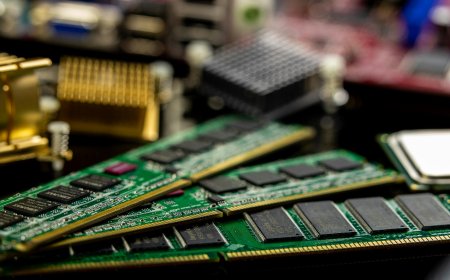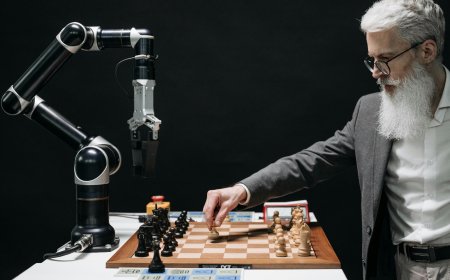Practical Applications for Quantum Computing in 2025

Once limited to theoretical physics and experimental laboratories, quantum computing is a transforming technology expected to arrive in 2025. Its capacity to tackle problems that traditional computers struggle with and concurrently handle enormous volumes of data is transforming sectors all around. From healthcare to banking, logistics to climate modeling, quantum computing is no longer a futuristic idea but rather a useful tool tackling some of the most difficult problems facing mankind. We discuss the practical uses of quantum computing in 2025 below and investigate how this ground-breaking invention is influencing society.
Revolutionizing Healthcare and Drug Discovery
Healthcare, especially in drug development, is one of the most exciting uses for quantum computing. Usually requiring years of research and billions of dollars, traditional approaches to creating medications are time-consuming and costly. By mimicking quantum-level molecule interactions, quantum computers are, however, altering this paradigm. These models let scientists project molecular behavior and interactions with it to unheard-of accuracy.
For instance, pharmaceutical behemoths like Pfizer and IBM have used quantum molecular modeling to hasten the creation of antibiotics and antivirals. Targeting treatments is made possible by an increased understanding of diseases like cancer or Alzheimer's by the use of quantum systems modeling of protein-protein interactions. This feature greatly lowers research expenses in addition to accelerating the drug discovery process.
Furthermore, organizations like the Cleveland Clinic are investigating protein folding—a crucial component in knowledge of neurodegenerative diseases—using specifically designed quantum healthcare technologies. The knowledge obtained from these simulations could result in revolutionary treatments once unthinkable with conventional computation.
Transforming Finance with Quantum Optimization
Dependent on sophisticated models for risk management, portfolio optimization, and fraud detection, the financial industry has always been data-intensive. By offering tools capable of processing enormous datasets and significantly more effectively optimizing financial models than conventional computers, quantum computing is transforming this sector.
To maximize investment portfolios, for example, JPMorgan and Amazon have embraced quantum algorithms, thereby lowering problem sizes by up to 80% and enhancing risk analysis accuracy. Thousands of possible investment combinations can be evaluated concurrently by quantum systems, therefore allowing financial organizations to make better judgments with less risk.
Furthermore improving data security in the financial industry is quantum cryptography. Using the ideas of quantum mechanics, financial organizations can safely trade encryption keys with methods like Quantum Key Distribution (QKD). QKD guarantees a strong defense against cyberattacks by being impervious to eavesdropping, unlike conventional techniques.
Advancing Artificial Intelligence and Machine Learning
Enhancing artificial intelligence (AI) and machine learning (ML) also depends much on quantum computing. To sift data and spot trends, classical artificial intelligence models call for massive computational resources. With their capacity to investigate several solutions concurrently via quantum parallelism, quantum computers are greatly advancing these developments.
Hybrid quantum-AI systems are starting to be used in 2025 to improve image identification, predictive analytics, and natural language processing capacity in several sectors. For improved commercial banking decisions, Huaxia Bank has worked with SpinQ to create quantum-enhanced AI models. These developments not only increase AI efficiency but also lower energy consumption—a crucial issue given the increasing acceptance of artificial intelligence.
Optimizing Logistics and Supply Chains
Quantum computing is showing great value in supply chains and logistics as well. Conventional optimization techniques find it difficult to handle the complexity of big-scale logistical issues involving many factors. Using techniques like the Quantum Approximate Optimisation Algorithm (QAOA), quantum computers can identify ideal answers faster.
Companies like DHL have been using quantum systems to maximize global transport paths, therefore lowering delivery times by 20%. Airlines are also using quantum algorithms to maximize flight routes, therefore reducing fuel usage and delays. These programs lower carbon footprints, therefore supporting sustainability initiatives in addition to increasing operational efficiency.
Enhancing Climate Modeling and Environmental Research
Dealing with climate change calls for more advanced models able to replicate intricate systems including carbon emissions, weather patterns, and ecological dynamics. One potent instrument for enhancing these simulations is quantum computing.
Quantum computers give more accurate forecasts for weather forecasting and catastrophe readiness by processing enormous volumes at hitherto unheard-of rates. They can replicate, for instance, how more effectively renewable energy sources like solar or wind farms could be included in electricity systems. These realizations enable legislators to create plans to lower environmental effects and greenhouse gas emissions.
Driving Innovation in Material Science
Quantum simulations are helping the discipline of material science greatly. Designing novel materials with particular characteristics requires exact models of atomic-level interactions, which researchers also need. Given the inherent complexity of quantum mechanics, classical computers frequently fall short in this respect.
Accurate quantum-level material modeling made possible by quantum systems helps scientists understand the Development of enhanced superconductors for energy-efficient electrical grids and new materials for renewable energy systems have benefited from this capability. Recent developments in topological qubits by Microsoft highlight even more the possibility of producing strong materials that could transform sectors from electronics to manufacturing.
Strengthening Cybersecurity
Quantum computers seriously threaten conventional encryption techniques applied in cybersecurity as their strength grows. Through post-quantum cryptography, they also provide answers though.
In safe communications, Quantum Key Distribution (QKD) has become a paradigm-shaver. QKD guarantees that any effort at eavesdropping disturbs the quantum state of the system by using the ideas of quantum physics, therefore warning participants of possible breaches. From finance to healthcare, this technology is being embraced to protect private information against upcoming quantum threats.
The Road Ahead: From Hype to Reality
Quantum computing will have evolved from theoretical promise to useful reality in 2025. Leading the pace with creative ideas like the Majorana 1 processor—a topological qubit-based device meant for massive computations—are companies like Microsoft. These developments signal a turning point on the path towards fault-tolerant quantum computing.
From isolated studies to broad acceptance, we are seeing a change as sectors keep including quantum technologies in their activities. In optimization, drug discovery, climate modeling, and beyond, the combination of quantum computing and artificial intelligence is opening fresh opportunities.
Although there are still difficulties including hardware scaling and error correction, the advancement achieved so emphasizes the transforming power of quantum computing. It is obvious as we enter this "utility era" that quantum technology will be absolutely important in determining the direction of science, business, and society at large.
Finally, as quantum computing advances from specialized uses into mainstream use cases across many industries, 2025 represents a turning point. Its capacity to solve challenging issues faster and more effectively than conventional methods is inspiring invention at formerly unheard-of rates. From climate solutions to medical innovations, the useful uses of quantum computing are not only hypothetical but also transforming our environment now.
What's Your Reaction?
 Like
0
Like
0
 Dislike
0
Dislike
0
 Love
0
Love
0
 Funny
0
Funny
0
 Angry
0
Angry
0
 Sad
0
Sad
0
 Wow
0
Wow
0































